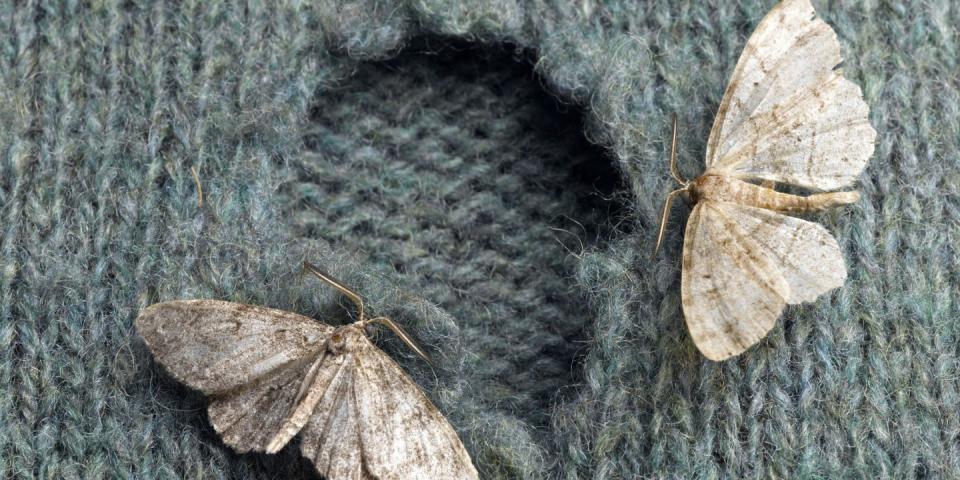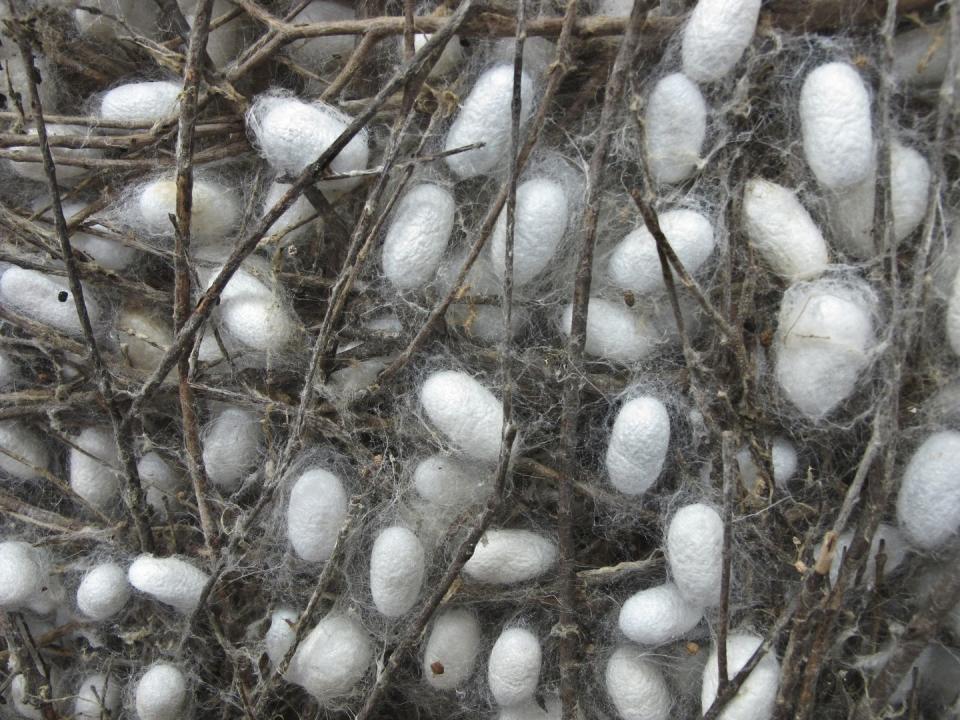16 ways to get rid of, and prevent, moths in the home

• Where do moths come from and how to tell if you have a moth infestation?
• Find out how to get rid of a moth infestation and how to protect your clothes from moths
Do you have a moth infestation? Are you wondering how to get rid of moths in your wardrobe, carpets or kitchen? We've done our research and rounded up the best advice and natural methods to prevent moths from entering your home and solve the problem if they already have.
Clothes moths have seen a rapid rise in numbers, with English Heritage saying they have doubled in the past five years. The charity has even discovered a new species feeding on the ancient fabrics under their care. So now more than ever, fabrics and furnishings are under threat from these pests.
Where do moths come from?
Most flying insects tend to be drawn towards light, but clothes moths actually prefer to hide away in dark, undisturbed areas like wardrobes, cupboards and boxes. They also stay near their food sources (see below for detail).
Moths have a very strong sense of smell and it is how they communicate, find mates and detect food.
Moths enter your home through open windows or doors. They can also be carried in on clothes and soft furnishings. Always be sure to shake out any clothes that are not packaged – like those from a charity shop or clothes swap or borrowed from a friend – before they enter your house.

Signs you have a moth infestation
Adult moths do not have mouths so holes in clothes are actually made from moth larvae. Sign of damage on your clothes will alert you to where the eggs have been laid. You should look out for webbing and cocoons in the corners of your wardrobe and cupboards.
Holes in clothes
Webbing in cupboard corners
Cocoons in cupboard corners
Musty smell on clothes
Larvae on clothes
How to prevent moths infesting your clothes
1. Wash before you put away – Moths are mostly drawn to the human sweat, hair and body oil that are left on clothing, particularly those made out of natural fibres (wool, feathers, fur, silk). Therefore, it's important to wash clothes before you store them – especially when putting them away for a long period of time.
2. Store clothes in an airtight bag or plastic container – Not cardboard boxes as moths can chew through these.
3. Keep your wardrobe ventilated – Moths are attracted to warm, humid spaces so make sure you open your wardrobe door regularly to increase airflow.
4. Hang clothing made from natural fibres on cedar hangers – Cedar will repel the moths. Put extra cedar items in the pockets of the garments if they are long.
How to get rid of a moth infestation in your wardrobe
5. Wash your clothes on a slightly higher temperature – Don't make a habit of this though, as it is less eco-friendly. Always check the laundry instructions on the label.
6. Or go cold – Similarly, moths eggs and larvae can't survive freezing temperatures either. If one item of clothing is particularly affected, put it in an airtight bag and then in the freezer for 24 hours. Check the clothes label first.
7. Clean all cupboards and wardrobes with a vinegar and water solution – Vinegar is a natural cleansing agent and the acid is not tolerable for moths. Be careful here when cleaning antiques.
8. Vacuum regularly – This will remove any eggs or debris that might be on/in the carpet.
9. Make your own natural repellant – Place dried rosemary, thyme, cloves, lavender or bay leaves into a small cloth bag and hang them in your wardrobe and place them in your drawers. The oil form of these herbs, sprayed on contaminated areas and clothes, can also repel moths.
10. Buy a natural moth spray – Such as these from Amazon.
11. Research a pest control expert in your area.

How to get rid of a moth infestation in the kitchen
12. Dispose of all contaminated foods and thoroughly clean the cupboard – If you notice a musty smell, webbing in the corner or a sticky secretion in your food cupboards - and/or have seen the moths or caterpillars themselves - then you need to take action on that area.
13. Be particularly careful of grains, nuts and rice – Moths both feed on, and lay their eggs, in these foods. Dispose of any open containers of these products.
14. Keep your kitchen well ventilated.
15. Buy a natural kitchen repellant
16. Herbs – Several fragrant herbs repel moths, including rosemary, thyme, cloves, lavender and bay leaves. Place the herbs in a small bag in cupboards or spray the essential oil into high-risk areas.
What NOT to do when you have moths
Attempt to treat a moth infestation with normal pesticides or products which you have not checked for toxic qualities. These can be damaging if they are transferred onto your skin through your clothes or bedding. They are also harmful to most household pets.
Are moths dangerous for humans?
On the whole, moths are not dangerous but it is possible for contact with an adult moth to cause a skin condition called lepidopterism, or caterpillar dermatitis. Symptoms can include a rash or irritated skin and, in the worst cases, eye irritation, a sore throat and breathing difficulties. Treatment can be obtained from the GP and normally includes antihistamine and corticosteroid cream.
Browse our other handy pest control guides...
Like this article? Sign up to our newsletter to get more articles like this delivered straight to your inbox.
You Might Also Like

